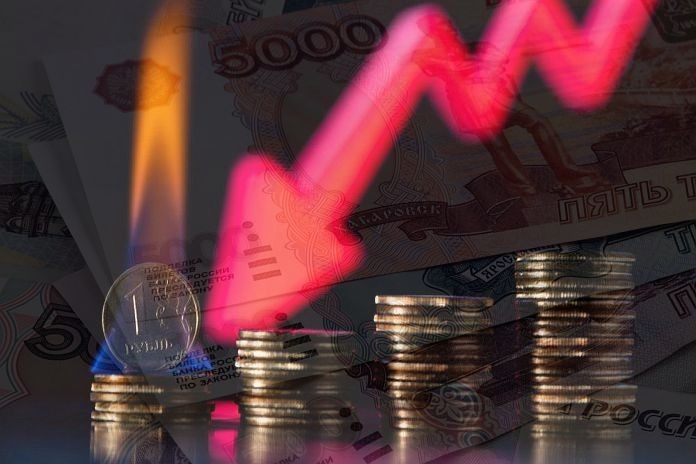By PYMNTS
War is waged with tanks, bullets and air attacks – and also with banks as battlefields, interest rates as weapons of economic mass destruction.
A fusillade of sanctions by the west against Russia, and its aggression against Ukraine, is having its desired impact.
The United States, the United Kingdom, dozens of European countries, Oceania and Japan announced sweeping sanctions Thursday, February 24 against Russia.
Read more: Biden, European Leaders Double Down on Russia Sanctions
The goal has been to bring Russia’s economy to its proverbial knees and ostensibly hobble its efforts to attack Ukraine.
There are signs, already, that the West’s concerted efforts are working.
The ruble is cashing, down by more than 25 percent in the last few days, and it is now worth less than one US cent. That devaluation comes as the West has targeted Russian bank operations. Most recently, on Monday, February 28, the US has prohibited Russia’s central bank from dollar transactions.
A significant percentage of Russia’s foreign exchange (FX) and trade activity is denominated in dollars. That means that the country cannot access the dollars it has traditionally kept in reserve – and, by extension, dollars cannot be used to counteract the impact of sanctions, or as a way to help prop up the ruble.
See more: US, Europe Levy Russia Sanctions, But All-out SWIFT Ban Not Likely Yet
Rising Interest Rates and SWIFT Bans
The Russian central bank has in turn more than doubled its interest rate to more than 20 percent in a bid to halt the slide in the ruble, which has devastating impact on the home front, where consumers must grapple with paying enormous sums for everyday goods and services. The threat of bank runs remains present, although they are not materializing (yet) in widespread form.
The Russian stock market was closed, and stock markets are key indicators of sentiment about economic and company-specific prospects. If stock prices plummet when the markets are reopened, companies will find it harder to raise capital (and top lines suffer amid economic collapse).
In the meantime, the most onerous sanctions emerged. Over the weekend, we’ve seen steps to use the SWIFT payments system as a weapon. The West has said it will block a limited number of (thus far unnamed) Russian banks from the SWIFT system. That messaging system is critical for cross-border payments, and in a sense is the glue that keeps international trade cemented. Thus, by keeping Russian banks off the system, the banks cannot work with other banks to get transactions done, which in turn makes everyday commercial commerce cost-prohibitive.
Call it economic pain by a thousand cuts – but it remains to be seen whether economic sanctions against Russia have the desired effect.





